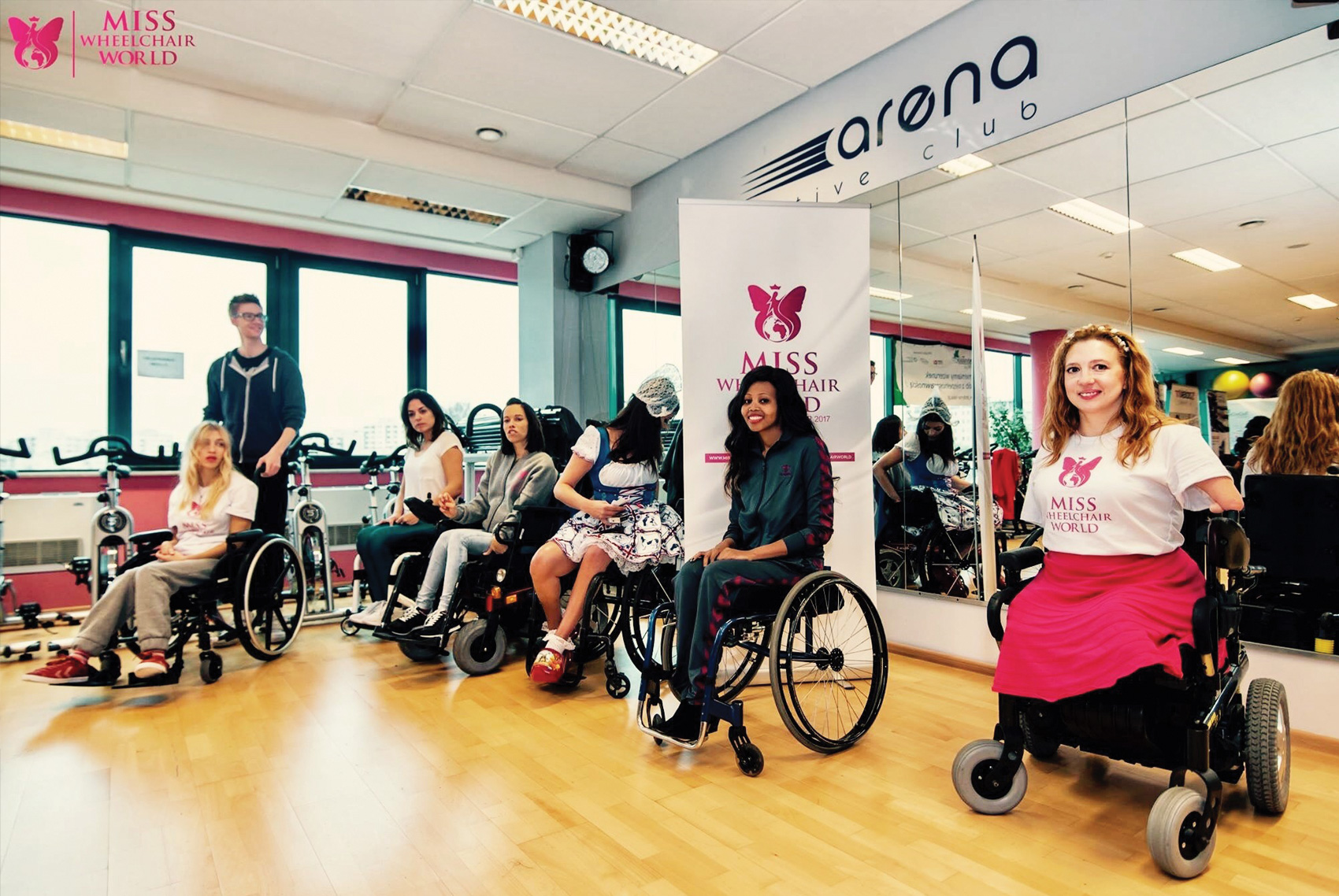A few months after being crowned Miss Wheelchair World First Princess, Lebohang Monyatsi chats to WILLIAM GEORGE about her journey and plans for the future.
Lebohang rolls into to the living room, waves at me and says, “Hi” with a smile. She moves swiftly from her wheelchair to a seat on a sofa. She has a soft voice, with a hint of laughter behind everything she says.
After speaking to her just for a while you realise that she is always smiling. A pleasant and charming character, a real-life beauty queen. She is staying with her two younger cousins, Thabiso (16) and Nthabiseng (11) Monyatsi; however, she is more like a big sister to them.
Lebohang was diagnosed with polio at the age of three and was raised by her grandmother after her mother passed away.

She doesn’t recall her grandmother ever treating her like a person with a disability. “She always motivated me and she is the reason I am the woman I am today. The most important lesson she ever taught me was that I will fall, but I must get up and keep trying until I get it right.”
She recalls the joy of her family when she came back from Poland, celebrating her victory with her. “It was great to see them; they are very proud,” she says.
The North-West beauty resides in Vanderbijlpark, where she has worked as the human resource (HR) practitioner at ArcelorMittal for almost two years. Previously, she was HR senior administrator at Transnet.
“I am enjoying it. The best thing about my current job is that there is growth, I do more than in my previous job and you need that kind of challenge if you want to be happy at work – that’s motivating,” she notes.
She is an accomplished woman, Miss Wheelchair World First Princess, a North-West University graduate, winner of the Extraordinary Champions (people with disabilities) at the 2017 South Africa Youth Awards and former player for the national team, South African Wheelchair Basketball league.
 In 2016, Lebohang was selected as a finalist for the Face of the Globe in London, but couldn’t make the trip due to a shortage of funds.
In 2016, Lebohang was selected as a finalist for the Face of the Globe in London, but couldn’t make the trip due to a shortage of funds.
That was not the end, though. She went on to apply for the very first Miss Wheelchair World pageant.
After being selected as a finalist, she was faced with the same financial challenges, and so she began campaigning and approached the Department of Social Development (DSD).
“Since there is a structure in place that is meant to support people with disabilities and women, I thought they should be able to help,” she says.
However, that did not happen.
She then contacted the Minister of Women in the Presidency. “I was hoping they would come to my assistance because I am a woman, but they rejected my request.
“I think our government does not support creativity or talent. It’s not about our abilities or disabilities. If it’s not sports, they won’t support us,” she says.
Generous funding was received later from an anonymous caller to a radio show on which she was being interviewed just a few days before she was due to leave for Poland.
Of the pageant ceremony, Lebohang says: “I did my best, so did everyone else, but I truly couldn’t believe it when they called my name.”
She became the first ever Miss Wheelchair World First Princess, and one of only two models representing the African continent at the competition in Warsaw, Poland.
Lebohang commends the accessibility for wheelchair users in Poland. “The accessibility there is great, from the transport to the buildings and the people. Maybe one day, I will live there,” she chuckles.

“I believe South Africa is ahead when it comes to accessibility for people with disabilities,” she notes, but adds that more can be done, particularly for those who are not wheelchair users.
In her view, the media also has a role to play, by featuring more representation of people with disabilities. When growing up, she never had anyone to look up to who was in mainstream media.
“The media has the power to change the way we see things and the way we learn, for example, finding an abled person to act disabled is a flaw: there are people with disabilities who went to study drama, and can act just as well – and even more convincingly.”
On her return from Poland she felt a little disappointed once again. She recalls the reception of Basetsana Kumalo in 1994, after she’d become Miss World first princess.
“There were only four people waiting to welcome me at the airport,” she laughs ruefully.
Nonetheless, she is happy with the messages and support she received before and after her journey to Poland, all from family, friends, and people on social media. “The citizens of South Africa were very excited, especially those with disabilities, I think it is because they had someone representing them.”
Lebohang has big plans and has been sending various proposals to different organisations. She is planning to introduce a competition similar to Miss Wheelchair in South Africa. “I have been speaking to people I met in Poland and they love the idea, but these are still only discussions…”
“If I don’t do it this year, it will definitely happen next year, There’s plenty to be arranged: booking the venue, obtaining the prizes and so much more. It will take some time to put it together, but it will happen,” she concludes.




